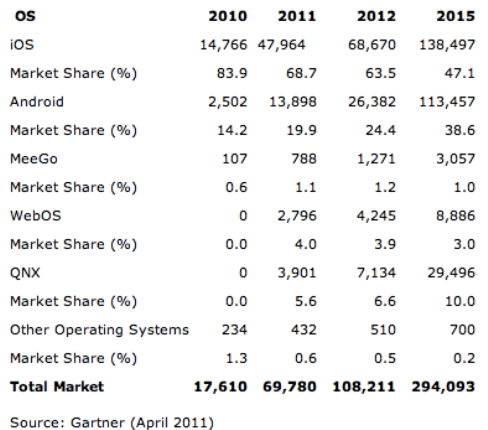All Things Digital’s Arik Hesseldahl reports that sales of HP’s TouchPad at Best Buy aren’t great. In fact, his source says that Best Buy has managed to sell less than ten percent of the 270,000 TouchPads that HP has shipped to the retailer so far. It’s causing Best Buy some angst, Hesseldahl says.
HP’s rapid move to cut the TouchPad’s price apparently hasn’t goosed demand, at least sufficiently: according to an analyst Hesseldahl quotes, consumers think that the price might tumble even further. And so rather than buy a cheap TouchPad now, they’re waiting for even cheaper TouchPads that could be in the works.
(MORE: How HP Can Save WebOS and the TouchPad)
I like competition and I like the TouchPad’s WebOS software, so I’m rooting for some incarnation of HP’s product to be a winner that sells well. But it’s not the least bit startling to see it get off to a slow start. The first reviews of the TouchPad–here’s mine–were pretty much unanimously lukewarm at best, pointing out bugs, performance issues, and a general lack of apps. Even if you were intrigued by the TouchPad, the reviews would leave you thinking that it made sense to wait rather than rush out and buy one.
And in environments where the TouchPad competes head-to-head with the iPad 2–like Best Buy–the first impression it gives isn’t helpful: it’s chunkier and heavier. If you bought a particular tablet purely because it was somewhat thinner and somewhat lighter than another model, you’d be making a pretty superficial purchasing decision. But it’s not as if general svelteness is the sole reason to learn towards the iPad.
The TouchPad has no points in its favor. Its WebOS software has some very nice features, like Just Type and Synergy. The interface is generally pleasing. But this is the sort of stuff that’s hard to suss out at a store. And even if you’re impressed by it, it wouldn’t be the least bit nutty to opt instead for the tablet with all the apps.
(MORE: HP’s TouchPad: A Promising Tablet That Needs More Polish)
Anyhow, Hesseldahl’s article is only the latest of many about a non-iPad tablet selling poorly. I’ve seen no evidence to date that any tablet except the iPad is a hit. We can officially conclude that the strategy followed by a bunch of companies–rush out a half-baked product, and advertise it like crazy–was itself half-baked.
And it leaves you wondering when the success stories will start to kick in that would create the thriving tablet market that research firms are still predicting will come to be. Here are some Gartner projections from April:

As always, I don’t think that the specific numbers in forecasts like these mean anything whatsoever. (Why does Gartner think that 8.886 million WebOS tablets will sell in 2015 instead of 8.885 million or 8.887 million? Or, for that matter, 7.259 million or 9.366 million?) But all of Gartner’s numbers for 2015 roll into one big one: more than 294 million tablets sold that year. The company thinks that tablets are going to be huge. As does Strategy Analytics: its projection of 150 million units sold by 2015 is less exuberant, but that would still make tablets the third-biggest consumer electronics product after TVs and PCs, according to CNN Money.
I think tablets are going to be big, too. But it’s been 19 months since the iPad was announced, and the rest of the industry still feels like it’s in dress rehearsal. Samsung’s Galaxy Tab 10.1 is the only non-iPad tablet I’ve seen that doesn’t look a tad out-of-date and/or unfinished. And given the lack of Android Honeycomb apps, even it has trouble with the basic question all tablets must answer: “Why should somebody buy this instead of an iPad?“
So let’s just say it: there’s another scenario here. It’s a little like the one that transpired with the iPod: one in which the iPad dominates indefinitely and every competitor squabbles over one tiny piece of the market-share pie. I still don’t predict that. But the longer it takes for Apple’s competitors to come up with products that are plausibly superior to the iPad in ways that matter to meaningful numbers of people, the less sensible it is to rule it out.
And for now, there’s really no such thing as a “tablet market.”
This article originally appeared on Technologizer…
LIST: Tablets: ‘Why Should Somebody Buy This Instead of an iPad?


